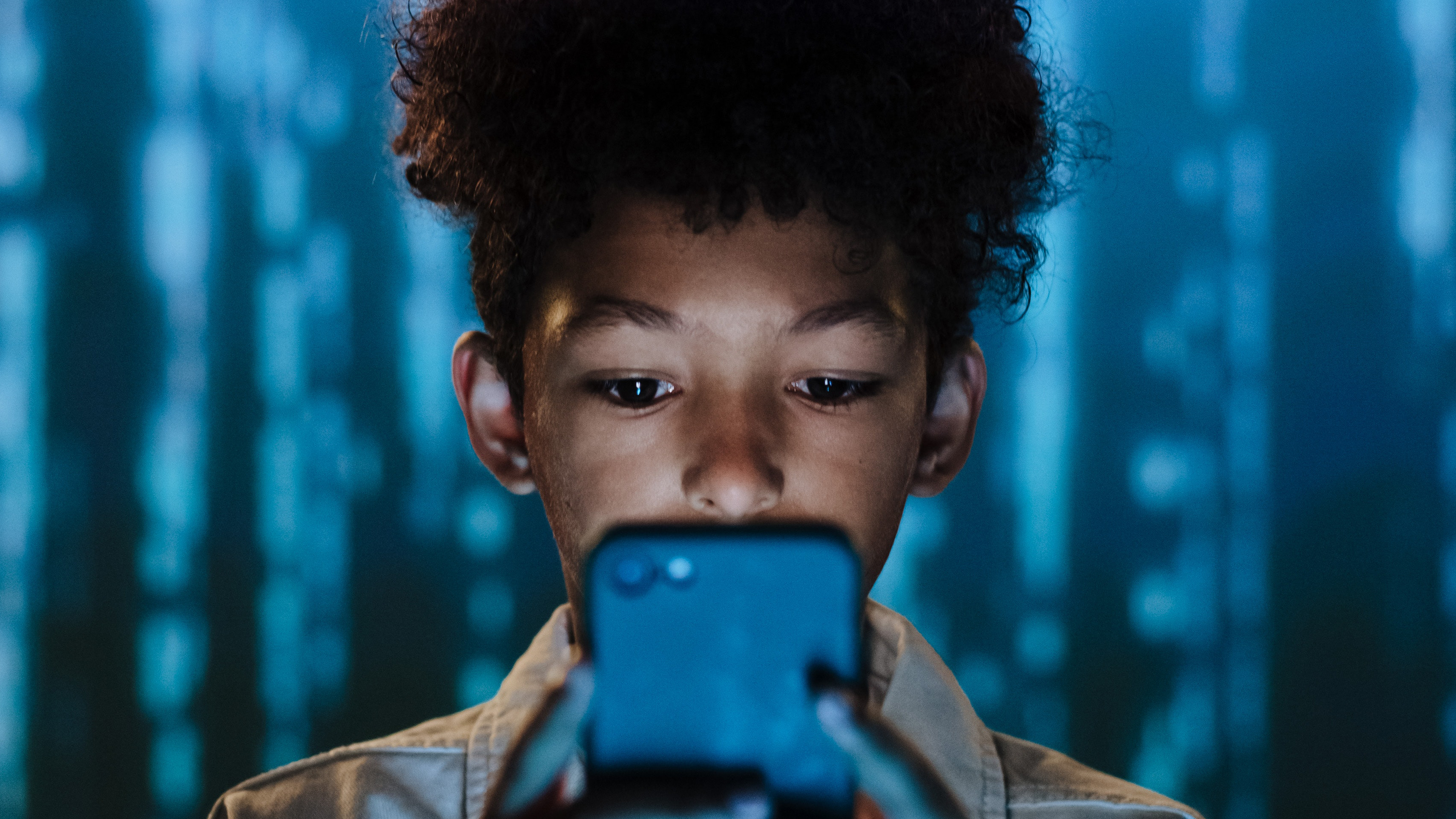iPhone or Android phone: which is the better buy for children?
What's the best smartphone for kids? Here's what to look for


As a parent, I'm often asked "why do you look so haggard, and why are you always grumpy?" But more pertinently to T3 readers, I'm also often asked whether parents should go for iPhones or Android phones for their kids. And the short answer is... it depends.
I think that for parents, some of the most important features aren't on any spec sheet. For example, price is important when kids aren't exactly famed for looking after their stuff. And while parental controls and features such as Find My are crucial too, ease of use is another key factor. And of course there's also the issue of what phone platform you already use, which is important if you don't want to pay again for apps or content you already own. So here's what I think you should consider.
Price is more important than power
I'd strongly advise checking out our guide to the best cheap phones, because you really don't want to spend serious wads of cash on a phone that may well be lost, smashed or stolen. You can minimise those risks by enabling location sharing in both iOS and Android, by having gadget insurance (which I'd really recommend) and by investing in a rugged case, but they're still risks. The cheapest phones by far are Android ones, so from a purely financial perspective they're the better buy.
If you don't want to pay for a new phone, going refurbished is an excellent option: both of my kids' phones are refurbs. Just be careful and check the small print carefully, because there are different kinds of refurbs. Some are almost factory-fresh; others may have significant cosmetic damage or key features such as Touch ID may not work. Reputable sellers will make this clear.
Parental controls are great on both platforms
Apple and Google do things slightly differently but their parental controls on their mobile platforms are both excellent, with the ability to restrict not just certain kinds of content but to limit when the devices can be used and for how long. I think Apple has a slight edge in user-friendliness but Android's parental controls are hardly an ordeal to set up.
When – and it's definitely a case of when, not if – your beloved misplaces their phone or leaves it at school, both platforms have very good phone-finding systems: Find My Device in the case of Google, and Find My on iOS. You can use both services to locate misplaced or lost devices, and to remotely lock and wipe them if you believe they've been stolen.
Some security issues to think about
There is one key difference between the two platforms. With an iPhone, the only place you can get apps is from Apple's App Store. There are no exceptions to that, and Apple is very good at screening apps (although some ad-funded apps may still show age-inappropriate content, so watch out for that). The Play Store for Android phones isn't quite so strict with its monitoring, and Android phones can also install apps from other sources.
Get all the latest news, reviews, deals and buying guides on gorgeous tech, home and active products from the T3 experts
That means Android is potentially less secure than iOS, and it's even more of an issue if you're buying second-hand: many Android firms stop issuing security updates after two or three years, leaving security gaps that malicious apps could exploit. Apple currently averages 5 years of OS updates for its iPhones.
Sharing is caring
Both Apple and Android enable you to share purchased apps, games, movies, TV shows, audiobooks and eBooks with up to 5 family members, and to apply parental controls to that content to ensure the kids don't access anything they shouldn't. And many streaming apps will enable the kids to sign in, although services such as Netflix are starting to crack down on people using their services from multiple locations.
Apple has another option, which I use for my kids: Apple One. Unlike Google One, which focuses purely on providing extra Google cloud storage, Apple One is mainly about sharing apps – so the Premium plan I have enables me to give the kids Apple Music, Apple News+, Apple TV+, Apple Arcade, Apple Fitness+ and 2TB of iCloud storage. That's pricey, though, at £32.95 a month. The Family Plan is £22.95 a month and shares Music, TV+, Arcade and 200GB of iCloud storage.
Writer, musician and broadcaster Carrie Marshall has been covering technology since 1998 and is particularly interested in how tech can help us live our best lives. Her CV is a who’s who of magazines, newspapers, websites and radio programmes ranging from T3, Techradar and MacFormat to the BBC, Sunday Post and People’s Friend. Carrie has written more than a dozen books, ghost-wrote two more and co-wrote seven more books and a Radio 2 documentary series; her memoir, Carrie Kills A Man, was shortlisted for the British Book Awards. When she’s not scribbling, Carrie is the singer in Glaswegian rock band Unquiet Mind (unquietmindmusic).
